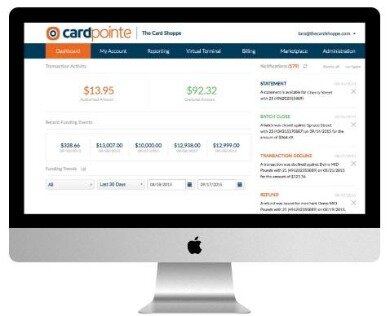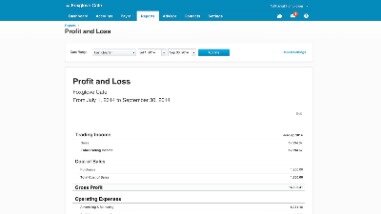
The view of Gomaa et al. (2019) currently holds that transactions are recorded in the blockchain system, but separately in the traditional double entry accounting system of the parties involved i n the blockchain transactions. Only in limited instances where an entity’s total recordkeeping system is on blockchain, such as new companies formed on blockchain, and integrated exists into the accounting system that directly produce t he financial statements. Yu et al. (2018) believe that through blockchain technology, accounting choices and judgements could become more transparent a nd that correspondingly this could result in increased comparability of accounting information. The real-time nature of a blockchain results in faster availability of information.
- He states that, from the audit point of view, using technologies like blockchain technology, cognitive tools and artificial intelligence, can enhance audit volume to help examine massive amount of data.
- Many organizations will likely be reluctant to share sensitive data (i.e., contract information, payroll) on a public blockchain and are asking important questions about the nature of blockchain and its future uses.
- This could protect the anonymity of stakeholders and determine the degree of decentralization.
Another potential issue that blockchain operators may face is the consensus problem. Upgrades to a transaction protocol may require a majority of network nodes to agree to a critical software (or hardware) update. Consensus to upgrade can be blocked if there is no majority in the network to vote for it.
Here are a few reasons why blockchains are disadvantageous for accounting processes. Both blocks and the records contained within them are linked through timestamps. This makes the blockchain an immutable record of transactional or operational events. More than 50% of payment infrastructure firms have incorporated blockchains in their business operations. On top of this, blockchain has been projected to grow global GDP by nearly $2 billion in 2030.
Using a blockchain ledger for managing identities makes it extremely hard for the fraudsters to intervene the system without leaving an evident digital trial. A blockchain’s immutable record empowers the accountants to take control of their data tied to their identity and make sure its accuracy with time. With blockchain decentralized identifiers (DiDs), users can regain full control over their record.
Advantages of Blockchains in Accounting
The functionality of smart contracts is to execute predetermined procedure in the blockchain system if certain conditions are met. Coyne & McMickle (2017) are of the view that smart contracts provide additional protection for the parties to different transactions. A control system of monitoring the implementation and changes to smart contracts is also needed (Yu et al., 2018). All blockchains have built-in cryptographic functions, which are capable of tokenizing and tracking any asset digitally in a secured manner (Es-Samaali et al., 2017). The assets could then be traded interchangeably with any other assets across countries in real time.
However, especially in light of other SLRs on similar topics, we see an opportunity to perform future in-depth analyses to test new methods, including empirical and quantitative methods. Cai (2021) cites three blockchain systems, but these cases were studied when they were within initial commercial rather than working phases. Following this introduction, the second section presents the details of our SLR methodology and introduces bibliometric visualizations of the 346 included research products. Finally, the Conclusion highlights our threefold contribution and provides an agenda for future impactful research on blockchain for accounting and auditing. The blockchain-based smart contracts are rapidly rising as a disruptive tool that can transform the way the financial statement audits are carried out and delivered.
What is Blockchain Technology?
Calderón and Stratopoulos (2020) show how the blockchain of the Listerine® supply chain works; this product is a mouthwash produced by J&J, a multinational pharmaceutical company. Listerine managers use blockchain to assure the provenance of input and to facilitate better coordination and trust between members. Notably, although every peer maintains a copy of the chain (hence, it is decentralized), it also entails an element of centralization Three Golden Rules of Accounting Examples PDF Quiz More because of its identity provider and ordering node. The most frequently cited paper in this area is that of Dai and Vasarhelyi (2017), which entered triple-entry bookkeeping into the academic discussion on blockchain and accounting. Their idea comes from Grigg (2005), who proposed a third entry recorded by a trusted third party that stores a receipt to which both parties involved in a transaction agree and digitally sign.
Using a distributed ledger also means that everyone can access the entire ledger without needing to keep any information in separate databases. During an audit, an accounting professional can easily confirm that a transaction happened, but the transaction details aren’t recorded. Blockchain technology will reduce the need to follow paper trails as the blockchain would be enough to prove many parts of a traditional audit. Blockchain’s immutable nature comes from the fact that once a public consensus validates a transaction into the blockchain, it’s virtually impossible to alter or delete the transaction.

It could also be the tool to provide absolute certainty to the ownership of assets. Blockchains and their almost immediate provision of an immutable record of transactions provides for shared transaction information, automatically synchronized across each location. Such a provision of information removes transaction level reconciliations and facilitates developing continuous auditing. For auditors, this offers the potential for a transition from a periodical or annual exercise to a continuous matter, one that can now encompass both parties to a transaction simultaneously. The subject of cryptocurrency is complex, and its decentralized nature means there are a number of regulatory issues accountants will eventually have to deal with.
Christenson (2013) distinguishes between sustaining and disruptive technologies. The first is an evolution of existing technologies, while the second advances existing technologies. Blockchain is seen as a technology that will change the way that information is recorded, sent, received, stored and controlled, and will ultimately change the quality of information (Watson& Mishler, 2017).
How Will Blockchain Technology Affect the Accounting Industry?
You’re invited to experience all the benefits and see to if this learning product is right for you. When the trial ends, full paid access and auto-renewal will begin for your convenience. Lay the foundation for your future as a strategic business partner within your organization and with your clients. The nature of the information in all of the articles is intended to provide accurate and authoritative information in regard to the subject matter covered.

If this subject interests you, understanding closing your books will help you more easily see the promising value of blockchain. This means they are taking blockchain more seriously and that it might be a good idea for you to as well. It’ll eliminate mundane jobs like reconciliation transaction data and having to put manual entries into your ledger. It protects the sensitive data of the transaction and acts as a receipt that verifies the transaction occurred at a certain time. Harshwal & Company, LLP has Mobile App to provide you with business insights, send RFP for Accounting, Auditing and IT services, register for training, send resume, keep up to date with news articles and events.
Therefore, blockchains may require firms to evaluate their ethical and compliance challenges concerning environmental action. A blockchain’s power consumption requirements are the real elephant in the room. Unlike a centralized system that can operate from literally one room, blockchains require many computers by default. In accounting terms, native digital currencies automatically allocate operational costs into the ledger. They also give users a means to trade them for other assets like fiat currency or other digital currencies. Blockchains can be configured to distribute workloads across large networks, some of them which are accessible to the public.
Institutional crypto-economics has also been used to provide solutions to the problem of information in world trade indicating that blockchains will lead to changes in the form and dynamics of global trade in future (Allen et al., 2019). Think of a blockchain as a digital ledger or database that records transactions. However, unlike a traditional ledger, a blockchain is decentralized, which means it doesn’t rely on a single entity or authority to maintain and validate it. Instead, the blockchain is maintained and validated by a network of computers that work together to add and verify new transactions. To have the suite of skills needed in 2021 and beyond, having an understanding of how blockchain technology affects audits is important.
New challenges and opportunities for audit and assurance
Blockchain technology reduces the possibility of disputes by fraudsters and scams. This reduces risks for all parties who use blockchain technology for accounting purposes. It also saves businesses a lot of time from having to deal with fraud or trying to collect money from dishonest organizations. For example, blockchain technology will record that you bought something with 1 bitcoin.
Implications of blockchain for auditors
For instance, professionals can spend time on areas requiring more judgment and advice while conducting due diligence. With the introduction of digital payments came digital receipts, which are easier to tamper. Blockchain has gained a lot of traction despite being a polarizing technology and an elusive concept for many.
We believe that this study will be a helpful resource for present and future scholars interested in addressing the most meaningful connections between accounting and disruptive applications based on blockchain. Therefore, it’s quite difficult for users to tamper with transaction records kept in the blockchain. Employers can worry less about employees making errors or unauthorized changes to accounting transactions.
Therefore, Dai and Vasarhelyi (2017) declare that, currently, a blockchain has the potential to play a part in the accounting information system or might be used in conjunction with it. Several developments still need to happen before a blockchain will become the norm for an integrated blockchain accounting system for major businesses, if ever. Transformation from current accounting systems might be slow and blockchain accounting systems might be used more by new businesses developed on blockchain system. Rozario and Thomas (2019) suggest the creation of a second blockchain owned by an auditor and connected to the accounting blockchain of the first client in a network.